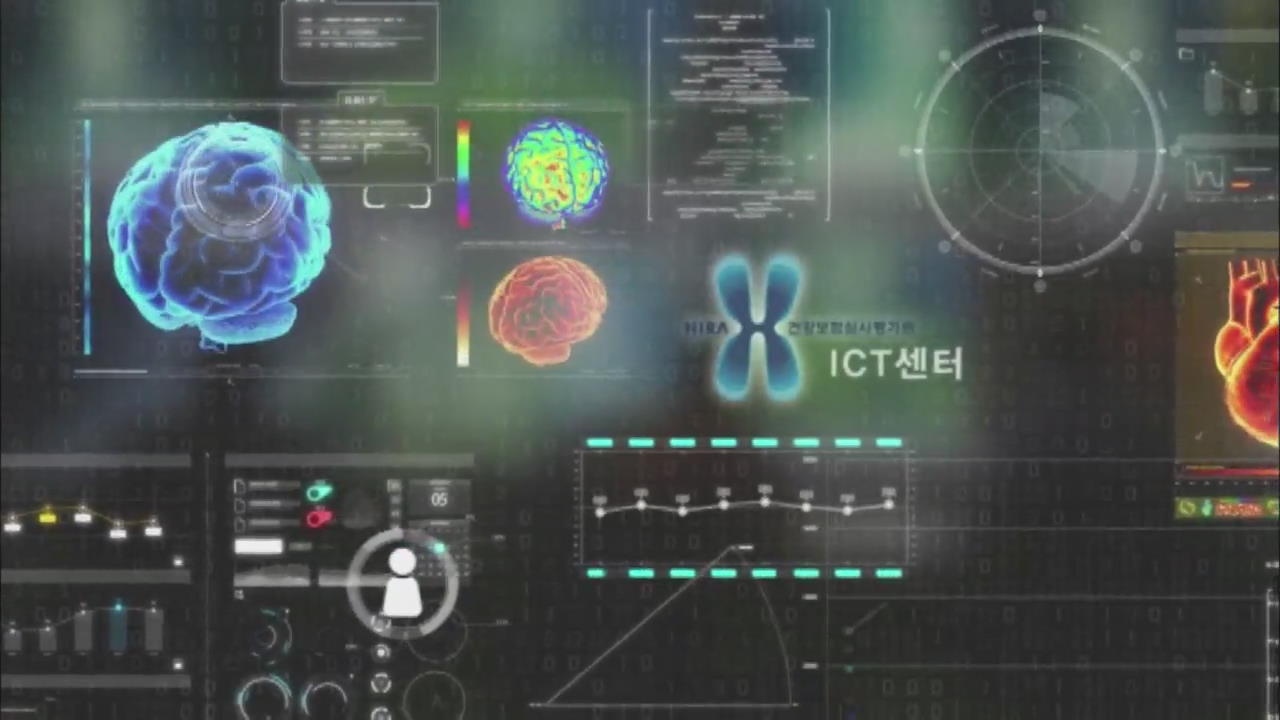Disease Control
입력 2016.12.22 (14:11)
수정 2016.12.22 (14:20)
읽어주기 기능은 크롬기반의
브라우저에서만 사용하실 수 있습니다.
[Anchor Lead]
The government has come under fire for failing to address the spread of influenza in its early stages. Starting next year, the government will use big data to detect early signs of infectious disease outbreaks. Let’s find out more.
[Pkg]
This is the information and communication technology center of the Health Insurance Review and Assessment Service. Information on medication prescribed by hospitals and clinics nationwide is collected here in real time. Data from 5.1 billion cases has been stored in this safe pharmaceutical use information system since 2010. The government has established a system to analyze this data and detect early signs of infectious disease outbreaks. Currently, an outbreak of an infectious disease can only be identified through reports from hospitals and clinics. But for 24 infectious diseases including influenza, health authorities' responses could be delayed, since it takes up to a week for them to receive reports on initial cases. In fact, this year's spread of influenza surpassed the conditions for a declaration of a pandemic as early as last month, but a flu alert was issued only early this month.
[Soundbite] Heo Gyu-young(Korea University Guro Hospital) : "The first and second week can be very critical for infectious diseases. In those cases, it would be better if a warning is issued earlier orreliable agencies provide information."
Starting with influenza next year, the Ministry of Science, ICT and Future Planning and the Health Insurance Review and Assessment Service will gradually expand the use of big data analysis for early identification of the outbreaks and spread of infectious diseases.
The government has come under fire for failing to address the spread of influenza in its early stages. Starting next year, the government will use big data to detect early signs of infectious disease outbreaks. Let’s find out more.
[Pkg]
This is the information and communication technology center of the Health Insurance Review and Assessment Service. Information on medication prescribed by hospitals and clinics nationwide is collected here in real time. Data from 5.1 billion cases has been stored in this safe pharmaceutical use information system since 2010. The government has established a system to analyze this data and detect early signs of infectious disease outbreaks. Currently, an outbreak of an infectious disease can only be identified through reports from hospitals and clinics. But for 24 infectious diseases including influenza, health authorities' responses could be delayed, since it takes up to a week for them to receive reports on initial cases. In fact, this year's spread of influenza surpassed the conditions for a declaration of a pandemic as early as last month, but a flu alert was issued only early this month.
[Soundbite] Heo Gyu-young(Korea University Guro Hospital) : "The first and second week can be very critical for infectious diseases. In those cases, it would be better if a warning is issued earlier orreliable agencies provide information."
Starting with influenza next year, the Ministry of Science, ICT and Future Planning and the Health Insurance Review and Assessment Service will gradually expand the use of big data analysis for early identification of the outbreaks and spread of infectious diseases.
■ 제보하기
▷ 카카오톡 : 'KBS제보' 검색, 채널 추가
▷ 전화 : 02-781-1234, 4444
▷ 이메일 : kbs1234@kbs.co.kr
▷ 유튜브, 네이버, 카카오에서도 KBS뉴스를 구독해주세요!
- Disease Control
-
- 입력 2016-12-22 14:12:06
- 수정2016-12-22 14:20:49

[Anchor Lead]
The government has come under fire for failing to address the spread of influenza in its early stages. Starting next year, the government will use big data to detect early signs of infectious disease outbreaks. Let’s find out more.
[Pkg]
This is the information and communication technology center of the Health Insurance Review and Assessment Service. Information on medication prescribed by hospitals and clinics nationwide is collected here in real time. Data from 5.1 billion cases has been stored in this safe pharmaceutical use information system since 2010. The government has established a system to analyze this data and detect early signs of infectious disease outbreaks. Currently, an outbreak of an infectious disease can only be identified through reports from hospitals and clinics. But for 24 infectious diseases including influenza, health authorities' responses could be delayed, since it takes up to a week for them to receive reports on initial cases. In fact, this year's spread of influenza surpassed the conditions for a declaration of a pandemic as early as last month, but a flu alert was issued only early this month.
[Soundbite] Heo Gyu-young(Korea University Guro Hospital) : "The first and second week can be very critical for infectious diseases. In those cases, it would be better if a warning is issued earlier orreliable agencies provide information."
Starting with influenza next year, the Ministry of Science, ICT and Future Planning and the Health Insurance Review and Assessment Service will gradually expand the use of big data analysis for early identification of the outbreaks and spread of infectious diseases.
The government has come under fire for failing to address the spread of influenza in its early stages. Starting next year, the government will use big data to detect early signs of infectious disease outbreaks. Let’s find out more.
[Pkg]
This is the information and communication technology center of the Health Insurance Review and Assessment Service. Information on medication prescribed by hospitals and clinics nationwide is collected here in real time. Data from 5.1 billion cases has been stored in this safe pharmaceutical use information system since 2010. The government has established a system to analyze this data and detect early signs of infectious disease outbreaks. Currently, an outbreak of an infectious disease can only be identified through reports from hospitals and clinics. But for 24 infectious diseases including influenza, health authorities' responses could be delayed, since it takes up to a week for them to receive reports on initial cases. In fact, this year's spread of influenza surpassed the conditions for a declaration of a pandemic as early as last month, but a flu alert was issued only early this month.
[Soundbite] Heo Gyu-young(Korea University Guro Hospital) : "The first and second week can be very critical for infectious diseases. In those cases, it would be better if a warning is issued earlier orreliable agencies provide information."
Starting with influenza next year, the Ministry of Science, ICT and Future Planning and the Health Insurance Review and Assessment Service will gradually expand the use of big data analysis for early identification of the outbreaks and spread of infectious diseases.
이 기사가 좋으셨다면
-
좋아요
0
-
응원해요
0
-
후속 원해요
0

















이 기사에 대한 의견을 남겨주세요.